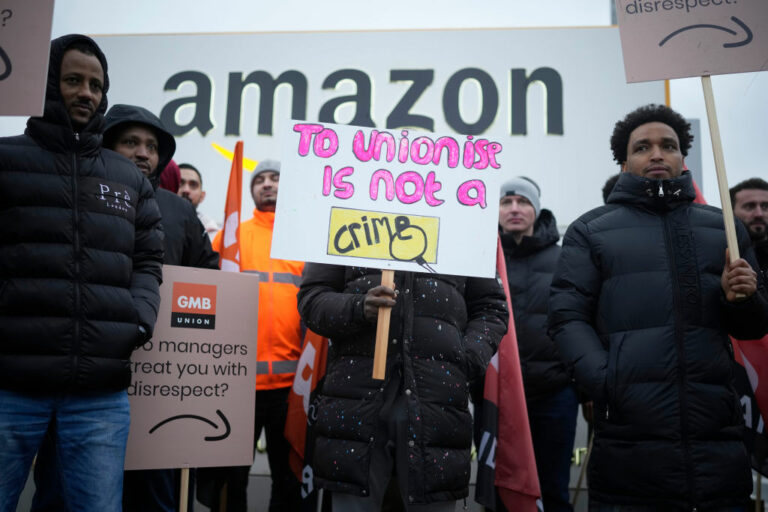It’s no secret by now that online retail experienced a huge surge in growth during the recent nationwide lockdown – but little is said about the 85,000-plus businesses that were forced to launch an online shop in the last four months.
Many of these businesses established their online stores with the likes of online marketplaces like eBay, Amazon, Trouva or even Facebook’s marketplace as their way of expanding into ecommerce. Marking one of the biggest shifts to online in the history of UK retail, it begs the question: how important is online for smaller retailers, especially when footfall suddenly vanishes?
“There are a number of factors in the current environment that make it incredibly important to turn to online,” Christopher Clowes, commercial director of digital marketing agency HC Media Group, told Retail Gazette.
“Personally, I think we are in the middle of another industrial revolution, this time a ‘digital revolution.
“The current situation with Covid-19 has just sped up the process that was already fully in flow.
“People’s buying habits are now changing”
“There is no need to visit physical stores anymore, which in a way is good for the retailer.”
Peter Scott, head of retail at Graystone Strategy, said: “It’s very important that they find a way to trade online but it doesn’t have to be via their own website.
“Amazon, eBay, Facebook, etc, offer alternatives, albeit it at a cost.
“They provide an immediate presence, a customer experience that can be hard and costly to develop yourself and an e-commerce capability quickly.”
As footfall across the UK dropped more than 40 per cent last month despite more lockdown measures easing, Clowes said that at present, no retailer – including independent ones – can survive solely off physical customers.
“My office is within a town centre and the footfall has dramatically dropped,” he said.
“People just do not want to risk going shopping at present unless it is for essentials.
“With the costs of rates and taxes sure to go up as the councils are not making any money, it is clear that we are near the end of the ‘high street’ style shopping.”
Marcel Hollerbach, chief marketing officer at optimisation platform Productsup, argued that it was becoming increasingly difficult for retailers of all kinds to rely on a single channel for revenues.
“Ultimately, you need to be where your customers are”
“While physical retail remains important, consumer appetite for ecommerce is accelerating and the focus for all retailers needs to be on how they can make these channels work together,” he said.
“By improving your online strategy, you will also help boost in-store foot traffic and create positive customer experiences online and offline.”
So will this surge of trading online remain and become the new normal? Clowes believes so.
“It is just so much cheaper to be able to sell online than in store,” he explained.
“You have so many more benefits than getting up and opening a shop every single day.
“We were already down this path, and all statistics point to a growth in the ecommerce market year on year, 2020 has just turned up the volume to make this happen quickly.”
Scott argued that if anything, the pandemic accelerated the ecommerce trend.
“We are now seeing the growth that we would have seen over the next five years happen now,” he said.
As shopping habits continue to shift there are key things small business owners need to know before they move online.
“Building an online shop may seem like a daunting, time-intensive task,” explained Hollerbach.
“There’s a range of tools small business owners can use to get ecommerce up and running, like Shopify, which now offers even warehousing and fulfilment services,
“Online marketplaces also offer unique opportunities for small retailers to grow by reaching new markets, opening up new revenue streams and connecting with existing customer audiences.
“As technology progresses and competition increases, small business owners need to meet their customers across various channels to rival bigger retailers.”
“Do not expect to set the world alight on day one”
Clowes added: “It takes a lot of testing, optimising, then testing again before something sticks.
“I know a number of businesses that try a few things which do not work for them and give up,
“You are always only a couple of tweaks away from cracking it, and those that do crack it, turn out to be extremely profitable.”
As smaller retailers look to take advantage of the surge of shoppers coming online, Scott explained they needed to think about “how they get their individual brand properly represented online in the same way they would shop their shop”.
“They need to add something to their website to make it a destination,” he said.
“This might be a blog, advice and expertise, or tutorials. It’s all about making themselves different and stand out from the masses to drive traffic.
“Using social media to drive traffic to the website is a good idea, again by making it relevant to the target customer.”
Hollerbach added that one of the best ways for online retailers to go online is by taking advantage of the shopping functions of the major social media networks.
“Social commerce offers a range of benefits for smaller retailers including ready-made audiences, targeted selling, established models and a solid infrastructure,” he said.
“With new channels appearing all the time, it’s more important than ever for small businesses to be alert to the changing market conditions and be ready to act fast.”
There’s no doubt that this sudden surge to online will have a long term impact on small and independent retailers. Clowes said that in terms of return on investment, this would a great thing for them.
“It means that there is a lot less start up costs, a lot less logistics and a lot less worry and hassle,” he said.
“Drop shipping is going to become huge in all areas, whilst the smaller brands will be able to get in front of more people, at a lower cost per eyeball, meaning that they are going to get a higher return of investment and ultimately make more money.”
“The future of the high street is cake”
As for the future of high streets, Clowes beat around the bush.
“It is too expensive for a retailer to hold stock, pay rates and taxes, rent, utilities – and the consumer can get it cheaper online,” he said.
“It doesn’t make sense any more.”
Scott, on the other hand, was more hopeful.
“High streets will need a point of difference and therefore it’s likely that there will be more independents appearing, pop up shops etc which will make it a more interesting place to shop and be,” he said.
Click here to sign up to Retail Gazette‘s free daily email newsletter

















